Enhancing Access to and Uptake of Sexual and Reproductive Health and Rights for Girls, Boys, and Youth in East and Southern Africa to Improve Psychosocial and Mental Wellbeing
In Mozambique, girls, boys, and youths face significant social and mental health issues, including stigma, violence, limited access to sexual and reproductive health services, and challenges related to HIV/AIDS, such as discrimination and lack of knowledge about prevention and treatment. REPSSI addresses these challenges by enhancing psychosocial support and empowering adolescents through peer support groups and community conversations. Funded by the Embassy of Sweden, the project ran from 2019 to 2022, with a Phase 2 extension from April to November 2023.
OUR PROGRAMMING
The REPSSI project Enhancing Access to and Uptake of Sexual and Reproductive Health and Rights for Girls, Boys, and Youth in East and Southern Africa aimed to improve the sexual and reproductive health of adolescents and young people aged 10 to 24. Its goal was to enhance access to services, reduce HIV risk, and promote psychosocial support and mental wellbeing.

PROJECT APPROACH

The REPSSI project utilized a community-centered approach, engaging parents, caregivers, and health providers to create supportive environments for adolescents aged 10 to 24. It integrated mental health and psychosocial support with sexual and reproductive health services, established peer support groups for youth empowerment, and focused on capacity building through training teachers and community leaders to enhance health outcomes.
The capacity-building process in the REPSSI project involved training and mentoring teachers, community leaders, and health providers to enhance their ability to support adolescents and young people. This included equipping them with knowledge on sexual and reproductive health, mental health, and psychosocial support. Workshops and practical sessions focused on creating supportive environments in schools and communities, promoting effective communication and engagement with youth. By strengthening these stakeholders’ skills, the project aimed to foster a more inclusive and responsive health ecosystem for young people.
The REPSSI project implemented interventions such as peer support groups, community conversations, and training for teachers and health providers to enhance access to sexual and reproductive health services for adolescents. Post-project, beneficiaries reported increased knowledge about their health rights, improved psychosocial wellbeing, and enhanced self-esteem. They experienced better health outcomes, including increased access to HIV testing and treatment. Ultimately, the project empowered young people to advocate for their health needs, fostering long-term positive changes in their lives and communities.
During the REPSSI project, advocacy efforts included community awareness campaigns to educate about sexual and reproductive health, engagement with local stakeholders to promote supportive policies, and initiatives to involve parents in discussions about youth health. The project also trained community leaders and educators to advocate for adolescents’ needs, aiming to create a supportive environment that enhances access to essential services and psychosocial support.
After implementing the project, key lessons learned included the significance of community engagement, which promotes supportive environments for adolescents. An integrated approach combining mental health and sexual health services proved essential for holistic wellbeing. Peer support groups empowered youth, enhancing their decision-making skills. Capacity building for teachers and community leaders improved support systems. Continuous advocacy is crucial to sustain progress, and regular monitoring and feedback mechanisms are necessary for adapting interventions to effectively meet the evolving needs of young people.
